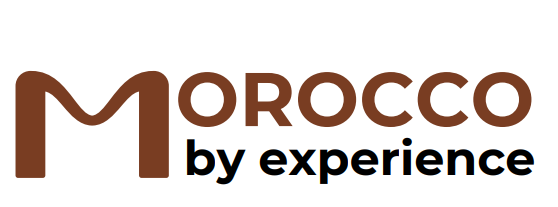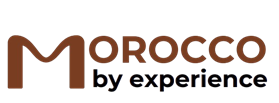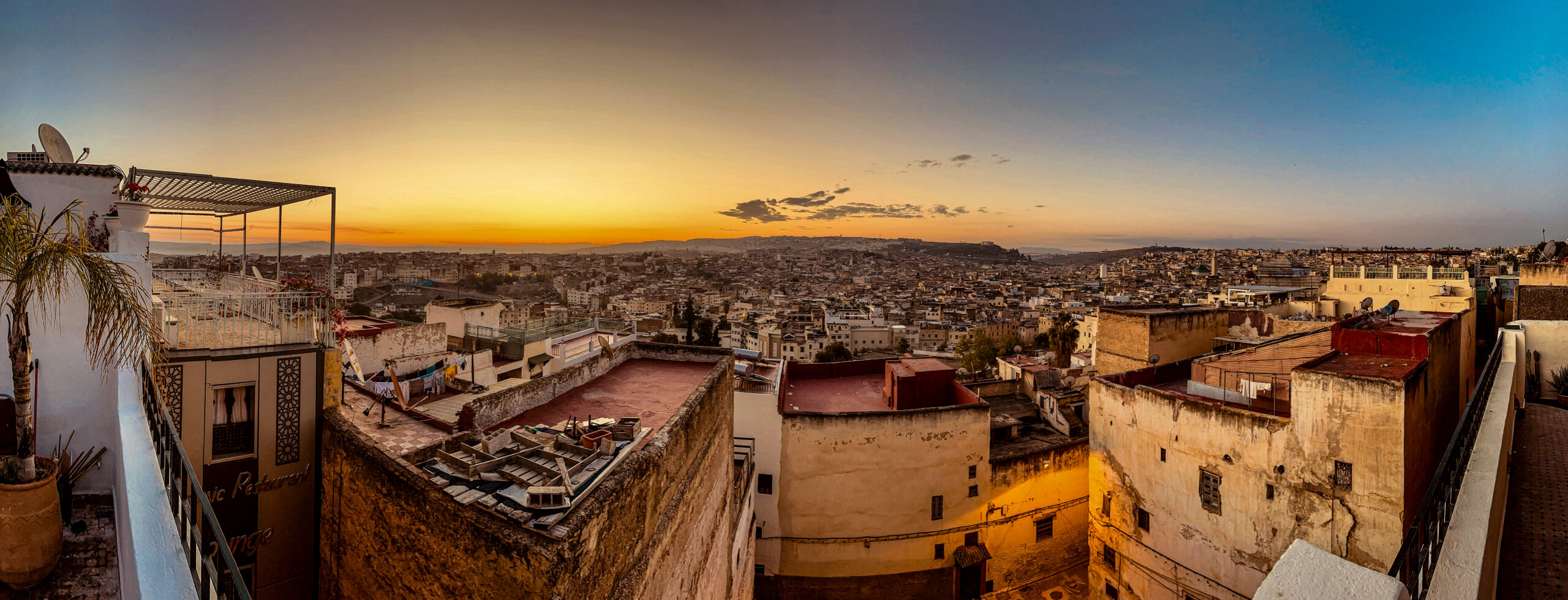Responsible Travel
Photography
You will want to take photographs everywhere you go in Morocco, the colours and culture is so vibrant. But remember to respect people, always ask permission, give them time to respond and thank them even if they decline.
Money
Haggling is part of the Moroccan way of life, so you need to just embrace it and join the fun. Trust your instincts and remember that most negotiations are just an economic exchange, not a way to trick you. Travelling with a local guide helps, as they can help you learn the tricks, but generally you should never accept the shopkeeper’s first offer – it goes against Moroccan custom in general, you can offer half the price, or 75 percent for expensive items and then take it from there! If you don’t speak Arabic or French, write down the agreed price, just to be clear.
Do tip in Morocco as so many people depend on it as part of their income and wages are low. Stick to a 10% tip and you will be giving fairly and squarely
Outdoor Activities
The outdoor activities are expanding in Morocco, with climbing, rafting and kayaking etc. Ensure for your safety that you travel with a responsible tour operator who can guarantee that all equipment and guiding meets high international standards. Wear a helmet when necessary, ensure there are buoyancy aids for water activities, and don’t be afraid to ask what their safety procedures and knowledge of first aid are.
As tempting as the oceans might appear, sea currents can be very strong on some parts of the Moroccan coast. Always seek advice about safe swimming and surfing areas.
Be wary of swimming in fresh water lakes or streams, as there is a parasitic infection known as Schistosmiasis, which is caused by a parasite entering the skin.
If you are hiking in the High Atlas, altitude sickness can be an issue, particularly as you hit the nausea territory of around 2,800m. Altitude sickness can hit anyone, so beware of the symptoms and follow your tour operator’s advice on acclimatising slowly.
Trekking responsibly in the Sahara and Atlas Mountains is a given, leaving no trace, telling people where you are going, being accompanied by a guide when necessary, and being prepared with safety and medical kits, food and water.
Don’t take on a desert trek that is solely by 4X4. Yes, they are necessary for getting out there, unless you go by camel or horse, but when you get there, try and trek as much as possible, as it is better for the dune landscape and also in terms of noise pollution, same applies for quad biking.
Morocco has a poor road safety record. So drive carefully if you intend to do so, and don’t take any unnecessary risks.
Health
Drink plenty of treated water and protect yourself from the sun with all possible methods. If you do get dehydrated through illness or heat, the 1 tsp salt/8 tsp sugar/1 litre of water ratio combo works a treat. It is also advisable if your tummy is easily unsettled to be prepared with medications such as Imodium and hydralyte for the trip, these items can also be easily found in local pharmacies.
Many people complain about hot water in hotels, or lack of. This is because hotels are often solar heated. So avoid long showers and it is worth remembering that water is scarce.
Hashis, or processed marijuana is commonplace in Morocco. Called Kif locally and rather poetically, from the Rif Mountains. Note it is illegal to smoke it, although it is for sale everywhere and many local people do smoke it openly in cafes.
Coronavirus (COVID-19)
The World Health Organization (WHO) has declared COVID-19 a pandemic. This has had a catastrophic impact on the tourism industry here in Morocco and across the globe, the health and safety of our clients is of the utmost importance to us here at vacations-morocco and thus it is important to take into consideration the WHO and your countries current recommendations for travel.
Important information transcribed below was obtained from the World Health Organisation website, for further information please follow the link.
Recommendations For International Travellers
It is prudent for travellers who are sick to delay or avoid travel to affected areas, in particular for elderly travellers and people with chronic diseases or underlying health conditions.
General recommendations for personal hygiene, cough etiquette and keeping a distance of at least one metre from persons showing symptoms remain particularly important for all travellers.
These include:
Perform hand hygiene frequently, particularly after contact with respiratory secretions. Hand hygiene includes either cleaning hands with soap and water or with an alcohol-based hand rub. Alcohol-based hand rubs are preferred if hands are not visibly soiled; wash hands with soap and water when they are visibly soiled.
Cover your nose and mouth with a flexed elbow or paper tissue when coughing or sneezing and disposing immediately of the tissue and performing hand hygiene.
Refrain from touching mouth and nose.
A medical mask is not required if exhibiting no symptoms, as there is no evidence that wearing a mask – of any type – protects non-sick persons. However, in some cultures, masks may be commonly worn. If masks are to be worn, it is critical to follow best practices on how to wear, remove and dispose of them and on hand hygiene after removal.
As for any travel, travellers are also advised to follow proper food hygiene practices, including the five keys for food safety, as well as recommendations to reduce the risk of transmission of emerging pathogens from animals to human in live markets.
Travellers returning from affected areas should self-monitor for symptoms for 14 days and follow national protocols of receiving countries. Some countries may require returning travellers to enter quarantine. If symptoms occur, such as fever, or cough or difficulty breathing, travellers are advised to contact local health care providers, preferably by phone, and inform them of their symptoms and their travel history.
Animals
Be careful when it comes to patting dogs and cats, as rabies does exist in Morocco. Many cats and dogs are commonly infested with ring worm also known as dermatophytosis, dermatophyte infection, or tinea, which is a fungal infection of the skin. “Ringworm” is a misnomer, since it is a fungus, not a worm, that causes the infection. The lesion caused by this infection resembles a worm in the shape of a ring — hence the name, so remember to wash your hands thoroughly if you come in contact with an infected animal.
Snake charmers can be less than charming, not only because they will ask for a bold amount of money for a photo of you with their snakes, but because they are known to stitch the snakes’ mouths together with fine twine, with just enough gap for the tongue to flick in and out of. The snakes aren’t able to eat, get tongue diseases and die. But they live long enough for a few tourists to have their photos taken. Then they are disposed of, and new ones are caught.
Monkeys are often used for tourist entertainment in Morocco. Kept in small cages with chains around their feet, this is animal cruelty and so we don’t recommend you support it. Please refer to our tours to find out where you can experiecne the wild Barbary Ape in their natural habitat for a photo opportunity.
Beware of souvenirs made of tortoises. Two main uses for the shells are decorative fire bellows and also for an instrument resembling the banjo. You can buy more sustainable ones, using gourds or ceramic bowls. Please be aware of what is acceptable to bring home to your country in regards to souvenirs to avoid disappointment.
In Marrakech, horses and carts, or calèche are commonly used by tourists as a form of transport.The locals transport goods in and out of the souks predominately using donkeys and mules. Many of these animals are cared for by the international organisation SPANA, which strives to protect the working animals of the world. SPANA run free health clinics for the city’s 300 horses and they have they built nine water troughs in the city as well. They also run extensive education programmes throughout the country for the local people. You can support their vital work through donations on their site, or simply ensure that you use one of their horses on your visit to our country. You can recognise them by the SPANA tag, usually around one of their ankles.
For more information please follow the link
Culture
Morocco is a Muslim country and so, although it is becoming a rapidly cosmopolitan, you do need to respect any cultural differences. Such as not drinking in public, dressing modestly, especially in rural areas where covering the legs, arms and shoulders is advised, and not being openly intimate in public. Using your left hand for greeting, giving or receiving food, or money doesn’t go down well either, as it is considered ‘unclean’ in Muslim cultures. Do also remember to respect Muslim practices during Ramadan, as Muslims do not partake in any drinking, eating or smoking in public during daylight hours.
Being harassed as a woman rarely occurs but sometimes is an issue, so common sense should always prevail. If you want to avoid it, dress modestly and avoid eye contact with men you don’t know.
Women Co-operatives
Moroccobyexperience is passionate about supporting our women co-ops throughout the country as part of our duty of responsible tourism. Majority of our tours give our clients the opportunity to experience and to perhaps contribute to these fabulous organisations that are so dear to our hearts.
So why do these Women Co-operatives exist?
Gender disparity is particularly profound in rural areas, where the communities are at an economic and educational disadvantage to their urban counterparts. Relegation of women and girls are due to a range of causes such as limited financial resources within households, the burden of household chores assigned to girls, the absence of education, lack of communication, non-existence of transport infrastructure and because of beliefs that prioritize educating males.
What is the purpose of Women Co-operatives and why should we support them?
Women Co-operatives enable independent income generation, create educational programs, give rural women the opportunity to solidify their pivotal role in the socioeconomic sphere, as well as the ability to dictate the terms of the community’s development. The co-ops provide and increase its member’s skillsets, develop a foundation for women and girls participation in decision-making and ascertain a rural value-added enterprise based on crafts to diversify the rural economy.
Please watch this link https://youtu.be/lKYbUTqorQ4 on the Co-operative Toudarte
Media Credit: Andrea Mancori and Sara Vicari
For more information head on over to their website
https://www.globalgiving.org/projects/women-girls-cooperative-in-high-atlas-mountains-morocco/
Waste
Waste disposal is an issue in Morocco, with rubbish seen throughout the country, in the mountains, valleys, beaches and on roadsides. So, please don’t add to the problem and simply take your rubbish away with you. Try not to buy too much bottled water and try to use water purification tablets. People will sometimes ask to take your bottle after you have finished, so that they can sell them for recycling.
ACITIVITIES
Donec sodales sagittis magna. Sed consequat, leo eget bibendum sodales, augue velit cursus nunc Lorem ipsum dolor sit amet, consectetuer adipiscing elit. Aenean commodo ligula eget dolor. Aenean massa. Nulla consequat massa quis enim. Donec pede justo, fringilla vel, aliquet nec, vulputate eget, arcu. In enim justo, rhoncus ut, imperdiet a, venenatis vitae, justo. Nullam dictum felis eu pede mollis
CAMPING
Nulla consequat massa quis enim. Donec pede justo, fringilla vel, aliquet nec, vulputate eget, arcu. In enim justo, rhoncus ut, imperdiet a, venenatis vitae, justo. Nullam dictum felis eu pede mollis pretium. Integer tincidunt.Aliquam lorem ante, dapibus in, viverra quis, feugiat a, tellus. Phasellus viverra nulla ut metus varius laoreet. Quisque rutrum. Aenean imperdiet. Etiam ultricies nisi vel augue.
TRANSPORT
Mea facilisis urbanitas moderatius id. Vis ei rationibus definiebas, eu qui purto zril laoreet. Ex error omnium interpretaris pro, alia illum ea vim. Lorem ipsum dolor sit amet, te ridens gloriatur temporibus qui.Etiam rhoncus. Maecenas tempus, tellus eget condimentum rhoncus, sem quam semper. Lorem ipsum dolor sit amet, consectetue. Aenean commodo ligula eget dolor. Aenean massa. Cum


